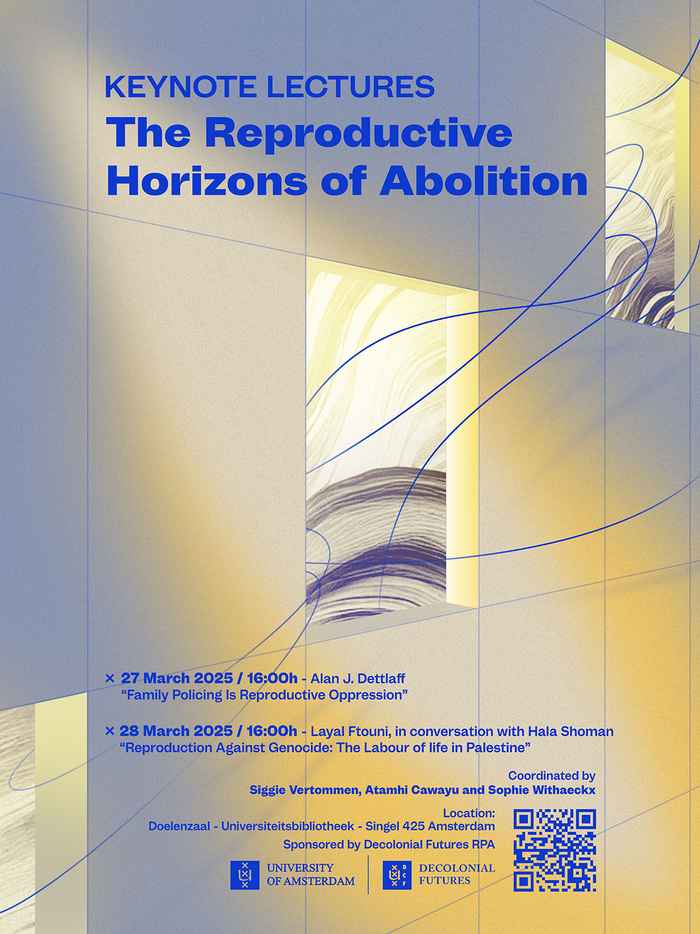Reproductive Horizons of Abolition: The Labour of Life in Palestine
A keynote lecture on reproduction against genocide, by Layal Ftouni (in conversation with Hala Shoman)
- Date
- 28 March 2025
- Time
- 16:00 -18:00

Today, this violence has intensified to an unprecedented level, directly targeting the ability of Palestinians to sustain future generations. The labour of reproduction in Palestine, both biological and social, is an insistence on life against all odds.
How is life reproduced under conditions intent on eradicating the very capacity to live on?
This lecture attends to this question by addressing forms of reproductive practices that attest to Palestinian labour of life as, first and foremost, a labour of liberation. The lecture is followed by a conversation between Layal Ftouni and Hala Shoman on reproductive justice and liberation in Palestine.
Layal Ftouni is an Assistant Professor of Gender Studies and Critical Theory at Utrecht University, the Netherlands. She is currently working on research project on the 'reproduction of life' in conditions of proximity to death and debilitation, both human and environmental, in the settler colonial context of Palestine. She received the Dutch Research Council VENI grant to support this project. Apart from her teaching and research work, Layal is a founding member of Dutch Scholars for Palestine, a network of educational workers across Dutch Universities committed to the Palestinian struggle for liberation and self-determination.
Hala Shoman is a PhD researcher in Geography, Politics and Sociology from Newcastle University in the United Kingdom. She originally practiced dentistry, but driven by a deep commitment to social and political justice, made a career shift due to the political situation in Palestine. Hala’s PhD work focuses on Palestinian Women at the Intersection of Colonial and Patriarchal Violence: Cultural Negotiations of Religion and Tradition in Gaza.